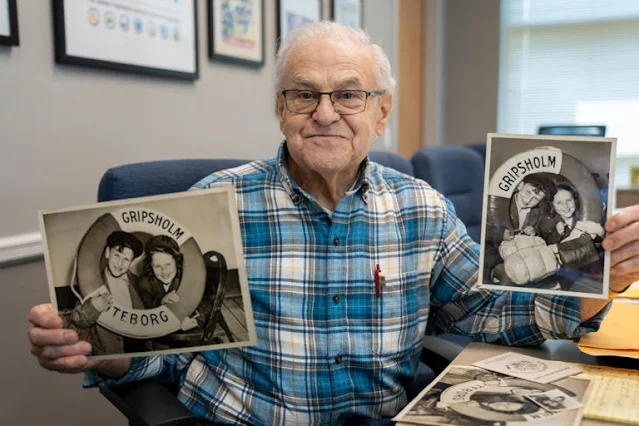Fred Kurz didn't speak about his Holocaust experiences for fifty years. He felt his story wasn't significant and found it painful to revisit. Even with his sister, Doriane, who passed away in 2005, he could only share silent acknowledgments when reminded of their World War II ordeals. Their bond was so strong that he described them as "one person." Talking about it was too difficult.
In 1993, Fred's synagogue in Southern New Jersey organized a Holocaust remembrance event. A rabbi, unaware of Fred's past, asked him to share his story privately. After hearing Fred, the rabbi urged him to tell it more widely, recognizing its importance. Despite initial apprehension, Fred began speaking at synagogues, schools, churches, and other forums, a practice he continues today.
Fred is one of many Holocaust survivors sharing their stories in short videos, aiming to combat Holocaust denial and hate speech. This effort coincides with Yom Hashoah, the Holocaust remembrance in the Hebrew calendar. With rising antisemitism and the Israel-Hamas conflict, Fred emphasizes the relevance of his message: preventing a recurrence of the past by understanding its conditions. He believes his story isn't the focus; rather, it's about remembering and avoiding the conditions that led to such atrocities.
Fred's story is poignant, depicting a once-prosperous family torn apart by war. Living in Holland, Fred's father, employed by a multinational optical company, was arrested and sent to Nazi camps, ultimately perishing in Auschwitz. His mother entrusted Fred and Doriane to the Dutch Underground for safety. Reunited briefly, the family endured Bergen-Belsen before losing their mother to illness.
Fred and Doriane later lived with relatives in Brooklyn, where Fred attended Columbia University. He became an engineer, raising a family in Cherry Hill, New Jersey. Fred's involvement in the #CancelHate campaign, initiated by the Claims Conference on Jewish Material Claims Against Germany, reflects his commitment to combating hate speech and antisemitism.
This campaign is particularly urgent due to a surge in antisemitism and Holocaust denial, exacerbated by recent events. It aims to preserve survivors' voices while educating younger generations. Despite the pain of reliving their trauma, survivors like Fred feel compelled to speak out, ensuring that the atrocities of the Holocaust are never forgotten or repeated.

